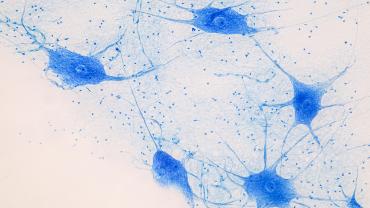
Nicotinamide adenine dinucleotide (NAD+) is an essential molecule to cellular functioning and human health. It is critical for cellular energy production and metabolism, and it is involved in hundreds of chemical reactions in the body. NAD+ is believed to have a particularly supportive role in cognition, neurological health, and healthy aging.
Research suggests that NAD+ may play a neurosupportive role through several biochemical pathways. NAD+ supports a healthy response to inflammation, antioxidative status, mitochondrial repair and maintenance, attenuation of protein aggregation, and the stimulation of HCA2 macrophages that play a role in supporting neuronal health.
Nicotinamide riboside (NR) is a variation of vitamin B3 (niacin) and an NAD+ precursor. Supplementation with NR has been shown to support healthy NAD+ status, mitochondrial function, and cellular health.
A recently published review article by Jared M. Campbell, University of New South Wales, Sydney, Australia, explored the potential link between supplementation with NAD+ precursors and prevention of certain age-related cognitive changes. One animal study involved mouse models related to Alzheimer’s disease (AD), which is a neurodegenerative condition associated with aging. NR was administered to the mice for 5 months. At the study conclusion, improvements in learning and memory were observed.
Another animal study assessed the role of NR administration in mouse models related to cerebral small vessel disease and hypertension. NR was reported to help attenuate decreases in short-term memory after 28 days. A similar study in aged mice observed improvements in short-term spatial memory in the presence of NR supplementation for 3 months. A 6-week murine study involving diabetes-induced mice showed that NR helped improve locomotor activity and spatial recognition memory.
A clinical study involved brain imaging and measurement of other biomarkers related to brain function and cognition in the presence of NAD+ precursors, including NR. Supplementation with NR was reported to be well-tolerated and improvements in physical function and blood flow were observed.
Nicotinamide mononucleotide (NMN) is another NAD+ precursor that may support certain aspects of cognitive function. NMN has been shown in animal studies to help support improvements in cognitive impairment in mouse models related to AD. The administration of NMN was shown to help improve higher brain function in older mouse models. Cognitive flexibility, recognition, working and reference memories were all shown to improve murine populations in the presence of NMN for 28 days.
The author describes gaps of knowledge in current research including efficacy-related comparisons among NAD+ precursors. Also, more studies are needed to investigate the preventive role of these molecules in healthy populations. In general, more clinical research is needed before conclusions can be made.
NAD+ is an essential molecule for many aspects of human health. Supplementation with its precursors such as NR may support cellular energy, cognitive function, and neurological health.
By Colleen Ambrose, ND, MAT